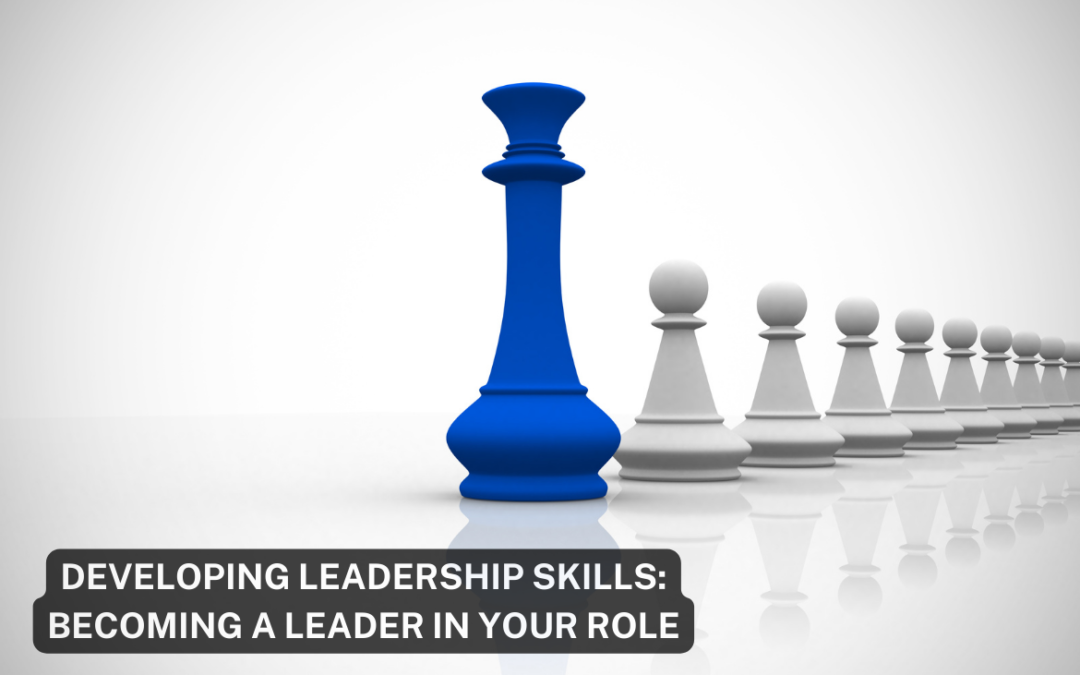Effective leadership is a crucial talent that cuts across job titles in today’s fast-paced workplace. Building leadership abilities is crucial for both professional and personal development, regardless of experience level. These are some essential tactics to assist you in taking on a leadership role in your position.
Embrace a Growth Mindset:
Leadership is a process rather than a destination. Adopting a growth attitude is the first step towards improving your leadership abilities. Recognise that obstacles are learning opportunities and that failures are stepping stones to achievement. Seek out new experiences on a regular basis, learn from comments, and regard setbacks as opportunities to grow. A growth mindset promotes resilience and adaptability, both of which are necessary characteristics for great leaders.
Lead by Example:
Set an example of the morals and diligence you expect from other people. A leader who sets a good example for their team members is respected and trusted. Your behaviour sets the tone for the workplace, whether it’s completing deadlines, keeping a positive outlook, or taking on obstacles head-on. Set an example of professionalism, morality, and commitment for your peers, and they’ll probably follow.

Develop Strong Communication Skills:
Skilled communicators make excellent leaders. To communicate ideas effectively and convincingly, practise your written and spoken communication skills. Asking insightful questions, giving constructive criticism, and actively listening to others will help you comprehend their viewpoints. Leaders who can effectively communicate their vision and actively engage with their team establish a foundation of trust and collaboration. Communication is a two-way street.
Build and Nurture Relationships:
Leadership is more than just managing work; it is also about leading people. Spend time developing excellent relationships with your coworkers, bosses, and subordinates. Create a supportive work atmosphere by getting to know your team members on a personal level and understanding their strengths and weaknesses. People are more likely to contribute their best efforts and work effectively when they feel respected and understood.
Take initiative:
Leadership is about proactively finding opportunities and problems rather than waiting for directions. Take steps to propose new ideas, make improvements, and volunteer for projects. By taking the initiative, you exhibit your dedication to the organization’s success and your desire to go above and beyond. Leaders are people who identify problems and actively take part in finding solutions.
Continuously Learn and Adapt:
The corporate landscape is continuously changing, and effective leaders must adapt to keep up. Keep up to date on industry trends, technology advances, and best practises in your profession. Attend workshops, acquire relevant credentials, and look for mentors who can offer advice. A leader who is devoted to constant learning remains adaptable and can confidently handle change.
Empower Others:
True leaders inspire their followers. Delegate tasks, give your team members the authority to make decisions, and provide opportunities for professional development. Recognise and appreciate your team’s accomplishments to build a positive and inclusive work environment. Individuals are more likely to take responsibility for their jobs and add to the overall success of the team when they feel empowered and respected.
To summarise, developing leadership abilities is a continuous process that needs self-awareness, perseverance, and a commitment to personal and professional improvement. You can position yourself as a leader in your role by adopting a growth mindset, leading by example, improving communication skills, creating relationships, taking initiative, being adaptive, and empowering others. Remember that leadership is characterised not by a job title but by the positive influence and impact you have on those around you.

